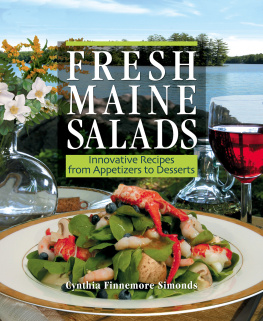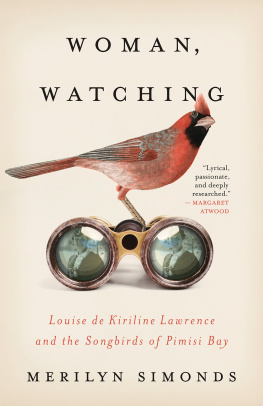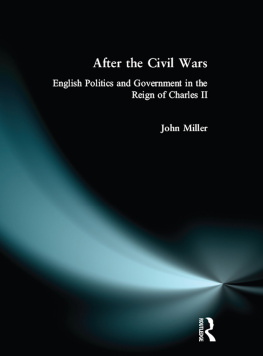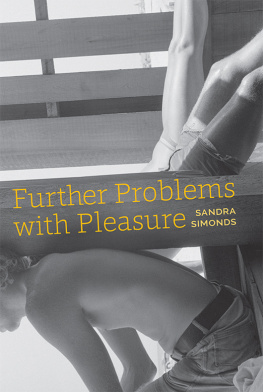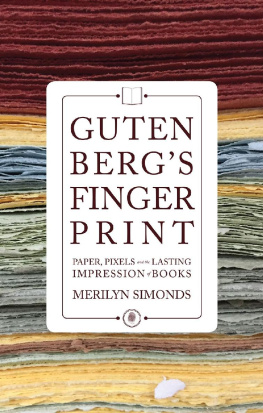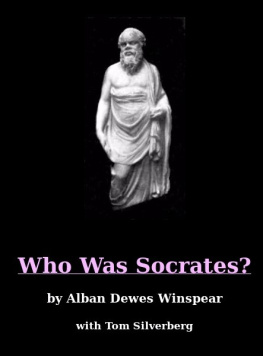
AN INDUSTRIOUS MIND
The Worlds of Sir Simonds DEwes
J. Sears McGee
Stanford University Press
Stanford, California
Stanford University Press
Stanford, California
2015 by the Board of Trustees of the Leland Stanford Junior University. All rights reserved.
No part of this book may be reproduced or transmitted in any form or by any means, electronic or mechanical, including photocopying and recording, or in any information storage or retrieval system, without the prior written permission of Stanford University Press.
Library of Congress Cataloging-in-Publication Data
McGee, J. Sears (James Sears), author
An industrious mind : the worlds of Sir Simonds DEwes / J. Sears McGee.
p. cm.
Includes bibliographical references and index.
ISBN 978-0-8047-8546-4 (cloth : alk. paper)
1. DEwes, Simonds, Sir, 16021650. 2. Great Britain. ParliamentBiography. 3. AntiquariansEnglandBiography. 4. PuritansEnglandBiography. 5. Great BritainPolitics and government16421649. 6. Great BritainHistoryEarly Stuarts, 16031649. I. Title.
DA390.1.D5M33 2015
941.06'2092dc23
[B]
2014034992
ISBN 978-0-8047-9428-2 (electronic)
Typeset at Stanford University Press in 10.5/13 Palatino
: The wall monument depicting Paul DEwes, his two wives, and his children that he commissioned in 1624. The contract he made with the sculptor Jan Janson is in BL Harl. MS 93, fo. 20v. The work is mounted above the door to the chancel at St. George Stowlangtoft. The children at the bottom of the sculpture include several carrying skulls to indicate that they died before the monument was made. Photo by J. Sears McGee.
For MARNI MCGEE
and the memory of
MARY BETH MCGEE
(19182012)
Contents
Figures
Preface
This book offers at least a partial answer to a question I puzzled over while researching my doctoral dissertation in the late 1960s. It was based largely on the writings of clergymen published between 1620 and 1670. As I analyzed sermons and devotional treatises looking for the political implications of religious concepts, I wondered what the laity made of the enormous body of material their preachers provided. The surviving evidence for clerical opinion bulks large, while that for the laity is slender. I planned to write another book consisting of case studies of members of the Long Parliament for whom sources exist that would enable me to study the relationship between their religious views and their political behavior. I selected Simonds DEwes as one of my cases, having found his treatise on persecution (The Primitive Practice for Preserving Truth, 1645) in the Thomason Tracts. After completing other projects, I was on sabbatical in autumn 1999 and readyat long lastto return to this one. I was astonished to discover that only five of the more than seventy volumes of DEwess papers had received significant scholarly attention. Although I badly underestimated the magnitude of the task I faced, I could not abandon it because I realized that, in DEwess papers, I had an opportunity to delve deeply into the mind of a devout lay Puritan who was an active MP in the Long Parliament and to write a biography that would explore the public and private concerns of an early Stuart individual at an unprecedented level of detail.
No one who has written a book of this kind can avoid incurring many debts, and the incurring of them is one of the greatest pleasures the life of a historian affords. I would not have been a historian at all had I not experienced the mentoring of Peter Laslett and John Elliott, my supervisors at Trinity College, Cambridge, during my junior year abroad in 196263. During my senior year at Rice University, Len Marsak and Lou Galambos reinforced my resolve to go to graduate school. At Yale, Jack Hexter and Edmund Morgan directed my research and earned my eternal gratitude for their wit, intellect, and guidance. All these men taught me to take history very seriously and myself not too seriously. They showed how doing history can be fun.
I joyously dedicate this book to the memory of my mother, Mary Beth McGee, and to my wife, Marni. My mother, an omnivorous and curious reader with an industrious and perceptive mind, encouraged my reading habits from childhood. Even after her eyesight failed, she listened as I read from the manuscript and asked thoughtful questions. I regret my inability to finish it before her death in 2012 because we would have enjoyed talking about it. Marni is a brilliant writer and editor who was the first reader of each chapter and a keen partner on what we came to call the DEwes trail. We visited the places in Suffolk where he and his kinfolk and friends had lived: Stowlangtoft, Lavenham, Ixworth, Bury St Edmunds, Long Melford, Kedington, Thornham, Boxted, Dalham, Preston, and elsewhere. Readers interested in viewing color photos from our jaunts and other sources will find them at http://www.history.ucsb.edu/faculty/sears/dewes.pdf. When I returned from long, entrancing days of reading in the DEwes papers in the British Library, she listened with interest to the stories I had to tell. In the spring of 2001, I attended one of John Morrills seminars in Cambridge and told him of my then early interest in DEwes. He very kindly introduced me to his former student Peter Salt. Peter soon became essential to my research because he generously gave me access to the translations he had commissioned from Nigel Rub-bra of DEwess Latin correspondence with Albert Joachimi, Johannes de Laet, and others. Peters generosity did not end with this splendid gift. He read and commented extensively on the draft chapters as they emerged and discussed them with me many times. His contribution to whatever virtues it possesses is beyond my ability to enumerate or adequately express. Blair Worden, like Marni, encouraged my work on DEwes from the beginning and later read and commented on the entire manuscript. Similarly, Paul Seaver, Barbara Donagan, Chris Kyle, Daniel Woolf, George Woodward, and Ian Gentles read the entire manuscript and gave me excellent suggestions. Ian also gave me access to his copy of Anne Steele Youngs typescript of DEwess Long Parliament journal. Several long lunches in London with Stephen Roberts were invaluable for my interpretation of DEwess thinking in the 1640s, and I am most grateful to him for making available to me Don Gilberts translations of DEwess Latin diaries for the History of Parliament Trust. I have benefited greatly from the advice of friends who read parts of the manuscript: Tom Cogswell, David Cressy, Jordan Downs, Paul Halliday, Simon Healy, Peter Lake, Ed McFall, Jason Peacey, and David Trim. I have enjoyed helpful conversations and/or correspondence about particular questions with Ann Jensen Adams, Hilary Bernstein, Lynn Botelho, Louis Caron, David Coast, David Como, Pauline Croft, Richard Cust, Eamon Darcy, Beth Digeser, Hal Drake, Jason Eldred, Ken Fincham, Andrew Foster, Matt Growhoski, Felicity Heal, Caroline Hibbard, Lamar Hill, Derek Hirst, Ann Hughes, Arnold Hunt, Robert Ingram, Michael Kelly, Paulina Kewes, Mark Kishlansky, Fritz Levy, Anthony Milton, Robert Morstein-Marx, Carol Pal, Wilf Prest, John Reeve, Mary Robertson, David Harris Sacks, Lois Schwoerer, Malcolm Smuts, Paul Sonnino, Isaac Stephens, Diane Stowell, John Sutton, Stefania Tutino, Alison Wall, Richard Weller-Poley, and Diane Willen. My editors at Stanford University PressNorris Pope, Stacy Wagner, and Eric Brandthave been a pleasure to work with. Despite this cloud of witnesses, any flaws that remain are my responsibility alone.
I am grateful to the Committee on Research at the University of California for grants that supported some of my travel as well as funds for the translation of Latin material by UCSB graduate students Lauren Horn Griffin, Patrick Ludolph, Joe Figliulo-Rosswurm, Corinne Wieben, and John Scholl. Students in my graduate seminars also made stimulating suggestions, especially Tim Daniels, Lauren Horn Griffin, Wendy Hurford, Patrick Ludolph, Jessica Murphy, Nathan Perry, and Brian Thomasson. The staff of the Manuscripts Reading Room at the British Librarymy home away from home in Londonhas always facilitated my work with courtesy and professionalism. And in Suffolk, the help Marni and I received from Ann and Ted Boyton, the key-holders to the late-fourteenth-century church of St. George Stowlangtoft, was wonderful. They live directly across The Street from the church in the tiny village and next to the alms cottages built with funds designated for the poor in the will of Simonds DEwess brother, Richard. They were pleased to help my research and during our first visit even lent us a stepladder so we could get a better photograph of the DEwes wall monument in the chancel. When we asked for advice about where to find a good lunch, they rightly sent us to the Pykkerell Inn on the High Street in Ixworth just two miles away. When they noticed that, in our excitement, we had forgotten to return the key to the church, Ted drove over to collect it from us at the pub.
Next page

